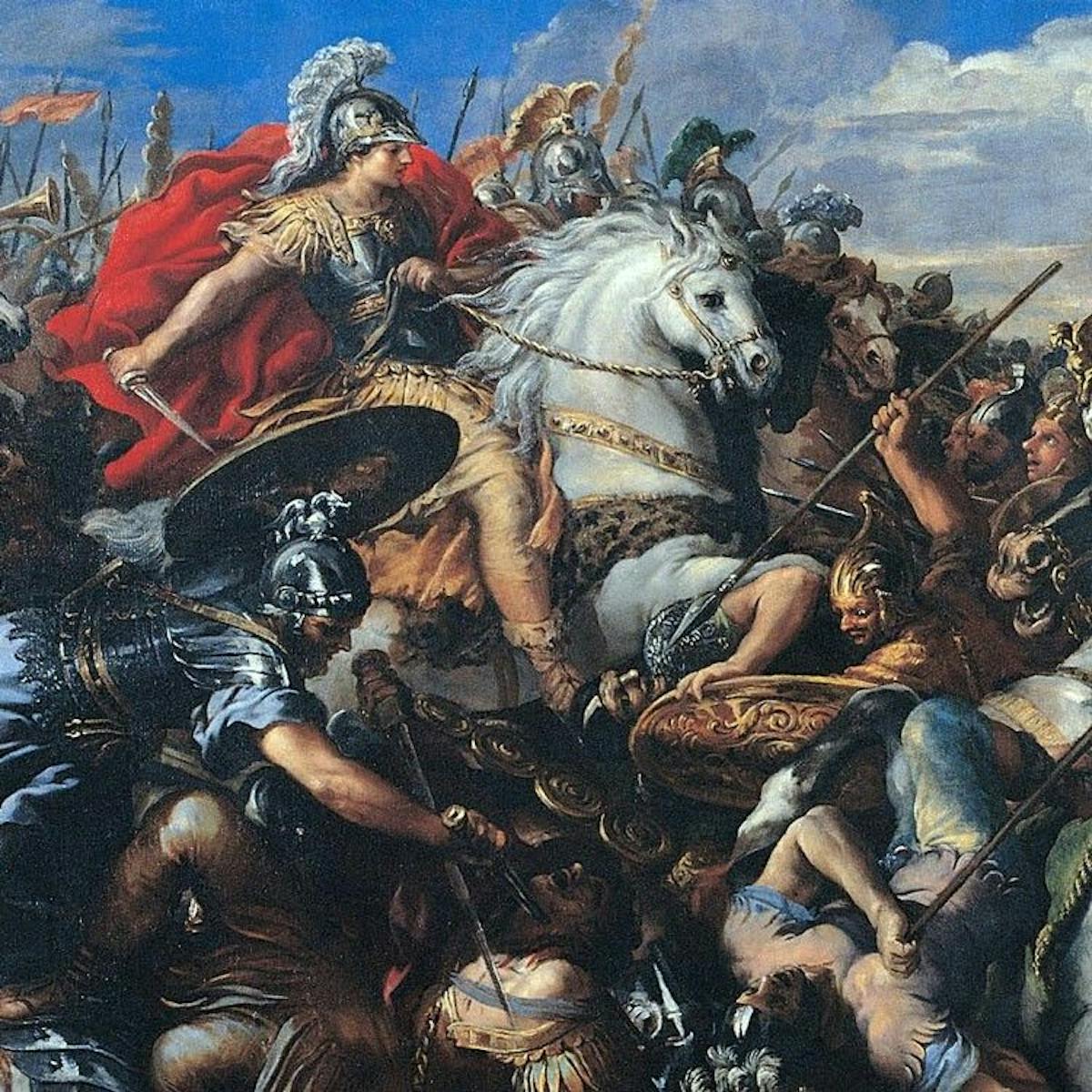Alexander massacred Greeks with the same abandon with which he massacred Persians, Afghans, and Indians
 Mechanicus 08/05/2024
Mechanicus 08/05/2024 
Passages taken from the book: The Madness of Alexander the Great by Richard A. Gabriel - historian and author. He is a former adjunct professor in the Department of History and War Studies at the Royal Military College of Canada and in the Department of Defence Studies at the Canadian Forces College in Toronto. Born: December 16, 1942 (age 81 years)
In this passage we can see the resemblance of the ancient Macedonians’s Homeric and pastoral culture with their direct descendants, the Albanians, which have strong pastoral culture and Homeric traditions: “The king and the Macedones meeting in Assembly were the only official organs of Macedonian state government. The roots of the Macedonian monarchy reached back to Homeric times. The original kings brought with them a Homeric view of kingship and imposed it upon the native peoples. Over time, however, this concept was modified by elements incorporated from Macedonia’s own pastoral past, when the original society of pastoral companies was ruled by the ‘chief shepherd’ or tshelniku, whose position seems to have been largely conbined to members of the same family, confirmed from time to time by election of the warriors around him. The powers that the Macedonian king derived from both traditions, Homeric and pastoral, were extensive, although not absolute. The Homeric idea that the king was descended from the gods and embodied their favour was central to the Macedonian king’s legitimacy. This embodiment was seen to reside in the person of the king who passed it on to his male heirs. Macedonian kings were always chosen from within the same bloodline, if not from the same immediate family. By Alexander’s time, the Teminid dynasty had ruled Macedonia for more than three centuries, and Alexander himself was its direct heir. In some instances, the infant son of the previous king was anointed while a regent ruled until the child was old enough to assume his rightful position. For a Macedonian king to be legitimate, however, required that the Macedones meeting in Assembly consent to his appointment by formal election, a practice rooted in the pastoral past when the warriors around the ‘chief shepherd’ were required to consent to a new chief. The central obligation of the Macedonian king, like that of the ancient tshelniku, was to attend to the religious and material welfare of his people.”
In this passage we arrive to the conclusion that the Macedonians had no relations to the Greek, apart from being their neighbors, their culture and language was not related at all with one the Greeks had, and furthermore, more Greeks fought against Alexander as mercenaries than with him. Alexander massacred Greeks with the same abandon with which he massacred Persians, Afghans, and Indians, including the wholesale extermination of a Greek colony in Persia that welcomed him with open arms as a fellow Greek:
“To understand Alexander, it is necessary to understand the culture that shaped him. In almost all aspects of cultural life, Macedonia was regarded by the Greeks as a geographic backwater, inhabited by semisavage barbarians who spoke an uncouth form of language, were governed by primitive political institutions, whose customs, social values, and sexual practices bordered on the unspeakably depraved, who were untrustworthy, dressed in bear pelts, drank their wine without mixing it with water, and were given to regular bouts of incest, murder, and regicide. To the degree that Greeks thought about Macedonia at all, it was from the perspective of snobbish and self satisfied contempt. Neither Greeks nor Macedonians considered Macedonians to be Greek at all.
Most Alexander historians have treated Alexander as a Greek, so much so that it is commonly assumed by many that Alexander was a Greek. In fact, Alexander was not a Greek, and nothing in the accounts of his life suggest that he was fond of Greek culture, values, or habits.
Alexander’s father was Macedonian and his mother was Illyrian. Neither the Macedonian nor Illyrian people nor their languages were Hellenic in origin, and the languages they spoke were mutually unintelligible with Greek. The language of the Macedonian court, Assembly, and the army was Macedonian, not Greek. Alexander’s famous tutor, Aristotle, although a Greek, was raised from childhood in the Macedonian court where his father was physician to King Amyntas. It was here that he became a boyhood friend of Philip. Aristotle surely spoke Macedonian as well as Greek, and there is no reason to suspect that when he tutored young Alexander he did not do so in Macedonian. As for Alexander’s supposed love of Greek culture, he did not import Greek culture to Persia, but instead ‘went native’ and adopted Persian dress and customs. Alexander massacred Greeks with the same abandon with which he massacred Persians, Afghans, and Indians, including the wholesale extermination of a Greek colony in Persia that welcomed him with open arms as a fellow Greek. The Greeks certainly did not consider Alexander a Greek, and more Greeks fought against him as mercenaries than with him.”

About Mechanicus
The head of the Albanian technological and patriotic revolution.